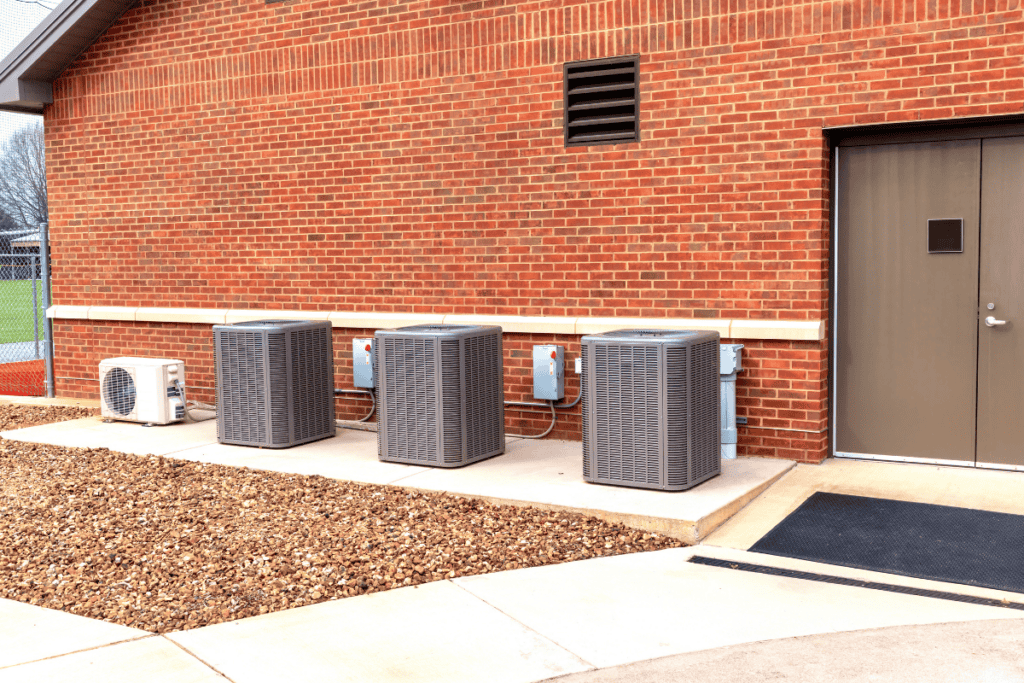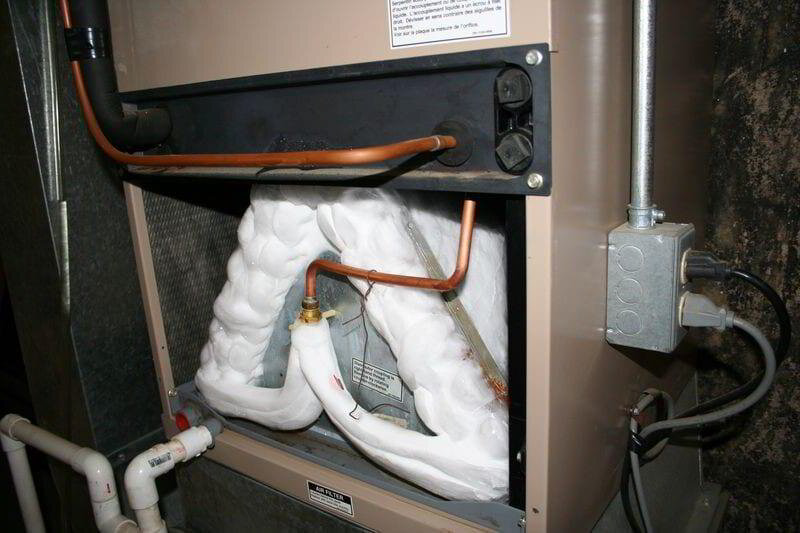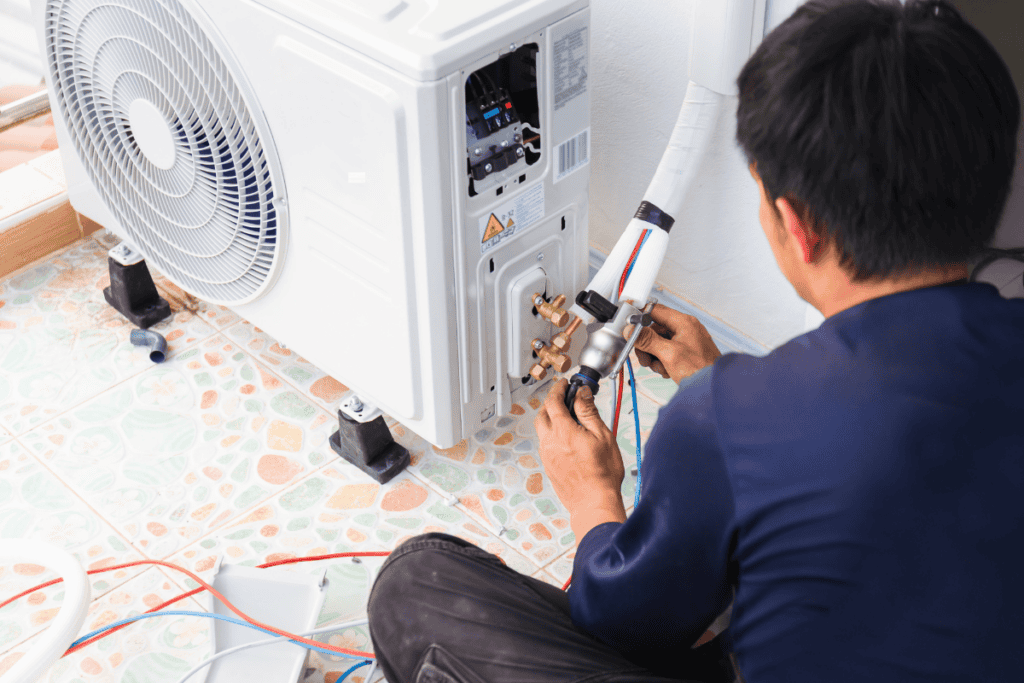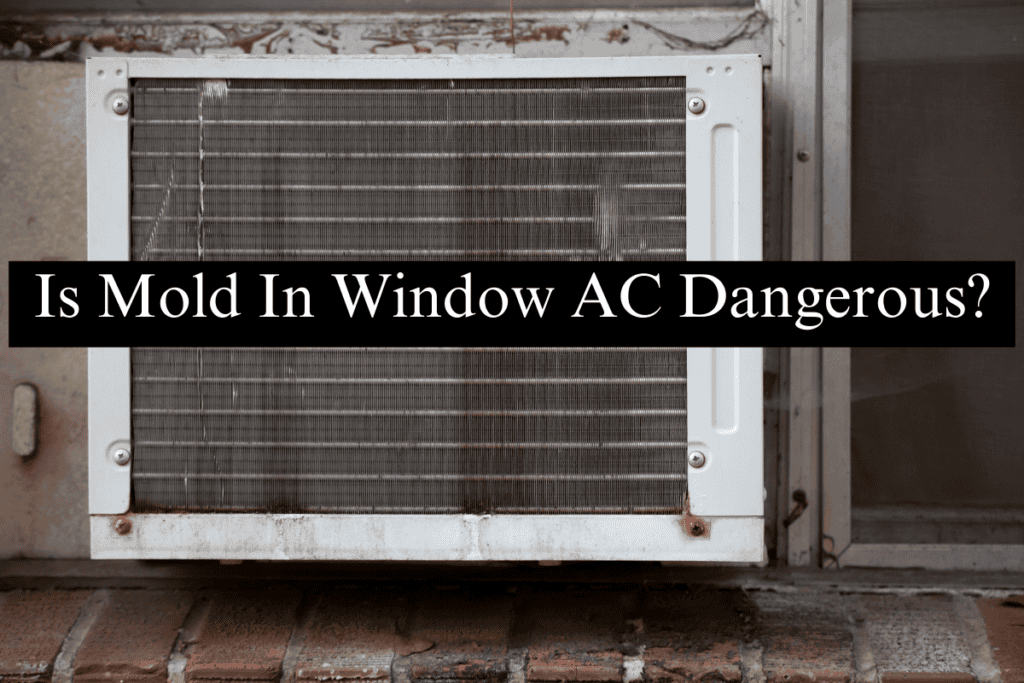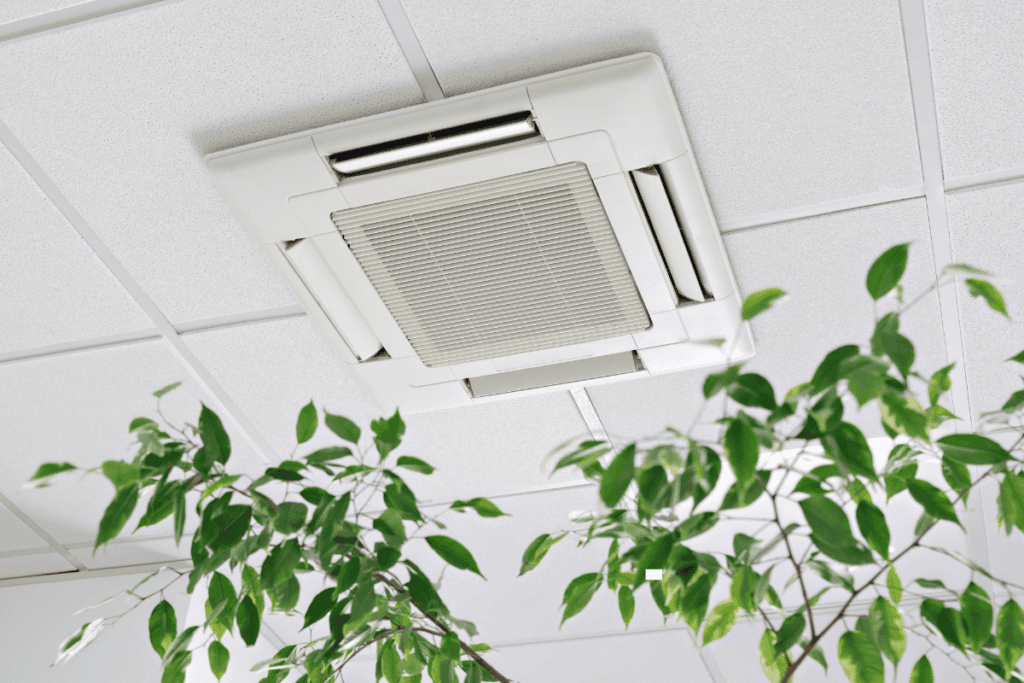Did you know that dirty coils in your air conditioner can lead to a 40% increase in energy consumption? Not only that, but the cooling function of your AC unit can also be reduced by 30% or more, leaving you with a less comfortable home and higher utility bills. All this just because of dirty coils.
The coils, hidden within your air conditioning system, are important to keep your space cool and comfortable. Over time, coils located in both the furnace and air handling unit can accumulate dirt, dust, and debris, hindering their ability to effectively transfer heat.
However, with proper maintenance and regular cleaning, your evaporator coils can last between 10 to 15 years, performing smoothly and efficiently throughout their lifespan.
In this article, we’ll guide you through the process of cleaning your AC coils, so you can keep your air conditioner running smoothly, improve air quality, and save money on energy costs. This comprehensive guide on how to clean air conditioning coils will provide you with the knowledge and tools needed to tackle this task.
Contents
- 1 What are Two Types Of Air Conditioner Coils
- 2 Why You Should Clean Air Conditioner Coils?
- 3 How to Identify Dirty Coils?
- 4 Methods for Cleaning Your AC Coils
- 5 How Often Should You Clean Your AC Coils?
- 6 Common Mistakes to Avoid When Cleaning Your AC Coils
- 7 When to Contact HVAC ANGEL?
- 8 Frequently Asked Questions
What are Two Types Of Air Conditioner Coils
5. Increases Comfort
Clean evaporator and condenser coils play a vital role in maintaining a comfortable indoor environment. When the coils are dirty, the cooling function of your AC system is greatly reduced, leading to inconsistent temperatures, hot spots, and poor indoor air quality.
By keeping your coils good, you let your air conditioner to remove heat from the indoor air and provide a consistent, comfortable temperature throughout your living space.
How to Identify Dirty Coils?
1. Poor cooling
Poor cooling is one of the most noticeable signs that your evaporator coil is dirty. When the coils are covered in dust and debris, they are unable to effectively absorb heat from the indoor air, resulting in warm air blowing from unit. If you notice that your air conditioner is not providing the same level of cooling as it once did, dirty coils may be the culprit.
2. Frozen Coil
This occurs when dirt accumulation restricts the amount of heat your evaporator coil can absorb. As a result, condensation builds up on the coil and the water turns into ice, causing the coil to freeze. If left unchecked, a frozen coil can eventually lead to your air conditioner not cooling your home’s air at all.
3. Longer AC runtimes
Longer runtimes are also a sign that your evaporator coils may be dirty. When the coils are clean, your air conditioning system can remove heat from the indoor air and maintain the desired temperature. Dirty coils use more energy, so the cooling cycles will last much longer, causing your system to run for extended periods to achieve the same level of cooling.
Methods for Cleaning Your AC Coils
Method 1: Clean AC Coils with Compressed Air
Cleaning coils with compressed air is a method typically recommended for the outdoor condenser coil. It is not advisable to use this method on the indoor evaporator coil, as it can blow dust and debris into your home. Using compressed air can be a quick and reasonably effective way to remove surface dust, dirt, and debris from the coil.
When applying compressed air to clean ac coils inside, blow it in the opposite direction of the airflow and place the nozzle facing the side that needs more cleaning. Avoid blowing air into ductwork, and if you need higher-pressure air, use a 90° angle or aim directly at the fins to prevent bending.
It is best to have a professional perform this method as they know proper technique.
Method 2: Clean Dirty AC Evaporator Coils with Household Detergent
Air conditioner coils can be cleaned using a solution of mild household detergent and water. The detergent and clean water mix is applied to the coil using a low-pressure sprayer. After application, the coil is either allowed to drain naturally or lightly rinsed with a garden hose.
Never use a pressure washer when cleaning, particularly when dealing with the evaporator coils inside your house as the high-powered spray can damage the coil’s thin metal fins.
Also, avoid using a highly acidic detergent, as acidic cleaners can damage the copper and alloy metals used in the coil, potentially causing corrosion and shortening the life of the coil.
Method 3: Clean AC Coils with Commercial Cleaners
Several types of commercial cleaners are available for cleaning AC coils, including foaming cleaners for outdoor condenser coils.
Before applying the commercial cleaner, clear away any surface debris by hand or with a special fin brush. Follow up by applying the commercial cleaner according to the manufacturer’s recommendations.
Depending on the cleaner instructions, you may need to rinse the coil with water after application. It is important to note that commercial cleaners should not be used on indoor evaporator coils, as they can be harmful to your health if inhaled.
Coil cleaners can be dangerous, so use them carefully and follow all safety precautions.
Remember to turn off the power to your air conditioning system before you begin cleaning.
How Often Should You Clean Your AC Coils?
How often you should clean your air conditioner’s coils depends on how quickly they get dirty, which is influenced by how often you use your unit. At a minimum, your coils must be cleaned at least once a year to maintain the efficiency and performance of your air conditioning system. However, there are situations when you should clean your coils more regularly:
- If you have pets that shed a lot of hair and dander, clean your coils every few months to prevent debris buildup.
- If your air filters clog quickly, even with regular replacement, clean your coils more often to remove the accumulated dirt and circulate clean air.
- If you live in a dusty or polluted area, clean your unit’s coils more frequently to prevent contaminants from hindering your system’s cooling capacity.
- If you notice reduced airflow or cooling capacity, clean air conditioner coils to restore your air conditioner’s functionality.
Common Mistakes to Avoid When Cleaning Your AC Coils
1. Using the Wrong Cleaning Solution on Evaporator Coils
Coil cleaners can be categorized into two types based on their chemical composition: acid-based and alkaline-based. Acidic cleaners are powerful and can effectively remove stubborn mineral deposits and rust, but they can be corrosive and may damage the coil if not used correctly. Alkaline cleaners are less aggressive and are suitable for removing greasy and organic residues.
Make sure to choose the right cleaner for your specific coil type and follow the manufacturer’s instructions to avoid damaging your air conditioner’s coils.
2. Not Having the Right Equipment
When cleaning your coils, gather the proper tools and equipment. Using the wrong tools or improvised solutions can lead to ineffective cleaning or even damage to your coils. Use a soft-bristled brush, a spray bottle for the cleaning solution, and a low-pressure sprayer for rinsing.
3. Not Wearing Protective Safety Equipment
Washing the coils involves working with chemicals and probably harmful substances. Always wear protective safety equipment, such as gloves, safety glasses, and a mask, to avoid contact with cleaning solutions and airborne particles when cleaning AC evaporator coils inside. Neglecting to use proper safety gear can lead to skin irritation, eye damage, or respiratory issues.
4. Not Letting the Cleaner Sit Long Enough
When applying a cleaning solution to your coils, allow it to sit on the coils for the recommended time. This allows the solution to break down dirt, grime, and other contaminants effectively. Failing to let the cleaner sit long enough can result in incomplete cleaning and reduce the air conditioner’s working capacity.
5. Setting a Hose on High Pressure
When rinsing your coils after applying the cleaning solution, avoid using a high-pressure hose. High water pressure can bend or damage the delicate fins on your evaporator and condenser coils, leading to reduced airflow and decreased system performance.
6. Turning on the AC Unit Too Soon
After cleaning your coils, it’s important to wait before turning your air conditioning system back on. Allow the coils to dry completely for 30-60 minutes to ensure that any remaining moisture has evaporated. Turning on your unit too soon can cause electrical issues or damage to your system’s components.
When to Contact HVAC ANGEL?
If you’ve tried the above-mentioned solutions and your unit is still not functioning properly, it’s time to contact the experts at HVAC Angel.
Our team of highly trained and experienced HVAC technicians understands the importance of clean coils in ensuring your air conditioner’s efficiency and longevity. We have the knowledge, skills, and tools to thoroughly clean both your evaporator and condenser coils, addressing any issues that may be hindering your system’s performance.
When you choose HVAC Angel for your coil cleaning needs, you can trust that you’re getting the best service possible. We use state-of-the-art equipment and cleaning agents to remove even the toughest dirt, grime, and debris from your coils, restoring your unit’s efficiency and cooling capabilities.
When your DIY efforts fall short, or when you need professional guidance, trust the experts at HVAC Angel. Contact us today to schedule your coil cleaning service and experience the difference that our skilled technicians can make in your home’s cooling system.
Frequently Asked Questions
1. Can you clean AC coils yourself?
Yes, you can clean your air conditioner’s coils yourself with the right tools and knowledge. However, it’s essential to follow proper safety precautions and cleaning methods to avoid damaging your AC unit.
2. How much does coil cleaning cost?
The cost of cleaning AC coils varies depending on factors such as the size of your air conditioning system, the severity of the dirt and debris, and your location. On an average, professional coil cleaning services can range from $100 to $400.
3. Is vinegar good for cleaning AC coils?
While vinegar is a popular household cleaning solution, it is not recommended for cleaning coils. The acidity in vinegar can potentially damage the coils’ delicate fins and cause corrosion over time.
4. Are AC coils expensive to replace?
Replacing coils can be a significant expense, with costs ranging from $600 to $2,000 or more, depending on the type of coil, the size of your air conditioner, and labor costs.

